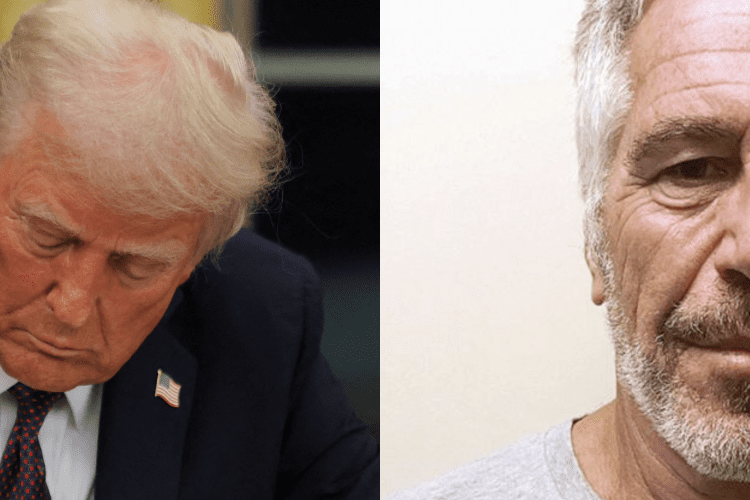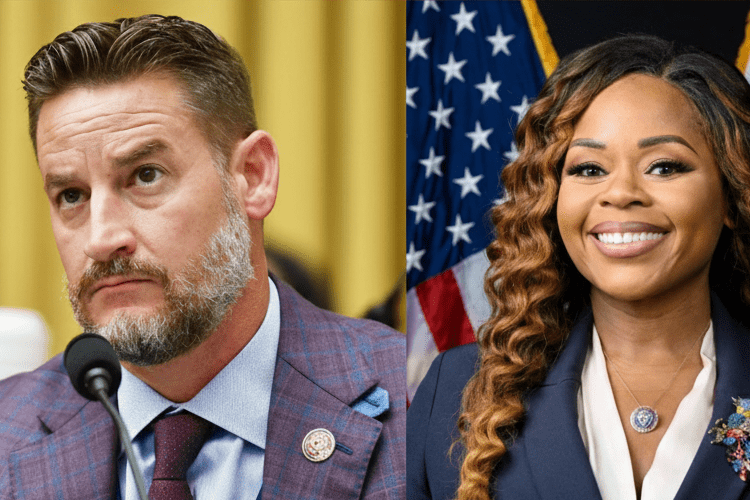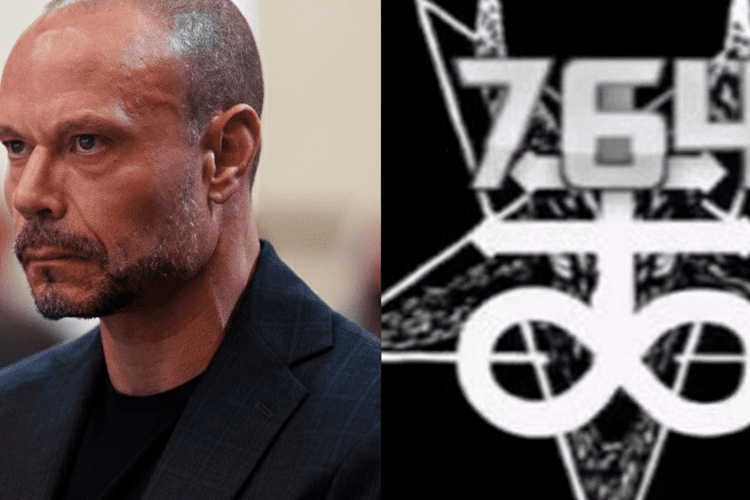From Private Jets to Political Peril: Trump’s Explosive Signing of the Epstein Files Act Exposes Bill Clinton’s 26 Flights, Hakeem Jeffries’ Cash Grab
In the resplendent glow of the East Room, where crystal chandeliers cast a deceptive shimmer over decades of diplomatic dances and whispered deals, President Donald J. Trump gripped the pen with a flourish that felt like the closing chapter of a long, shadowed saga. It was November 19, 2025, and as cameras whirred and aides hovered like sentinels, he signed the Epstein Files Transparency Act into law—a bold stroke mandating the Department of Justice to unleash up to 50,000 pages of long-buried documents within 30 days, peeling back the veil on Jeffrey Epstein’s web of influence that has haunted American politics like a ghost refusing burial. Flanked by survivors’ advocates whose quiet resolve spoke volumes, Trump paused for the applause, his eyes gleaming with the vindication of a promise kept. But it was his Truth Social post moments later that ignited the tinderbox, a fiery missive calling out Epstein’s “deeply associated” Democratic allies—from Bill Clinton’s 26 flights on the Lolita Express to post-indictment donation pleas from House Minority Leader Hakeem Jeffries. “Jeffrey Epstein, who was charged by the Trump Justice Department in 2019 (not the Democrats!), was a felon who donated thousands of dollars to Democrat politicians and was deeply associated with many well-known Democrat figures, such as Bill Clinton (who traveled on his plane 26 times), Larry Summers (who just resigned from Harvard), many Board members, including Harvard’s Minority Leader Hakeem Jeffries (who asked Epstein to donate to his Campaign after Epstein was charged), Congresswoman Stacey Plaskett, and many more,” Trump wrote, his words a digital thunderclap that reverberated from Capitol Hill to coastal enclaves. As the nation holds its breath for the December deluge, this isn’t mere paperwork—it’s a reckoning, a poignant unraveling of elite entanglements that tugs at the heart of trust in power, reminding us that even the mighty can fall when secrets surface.
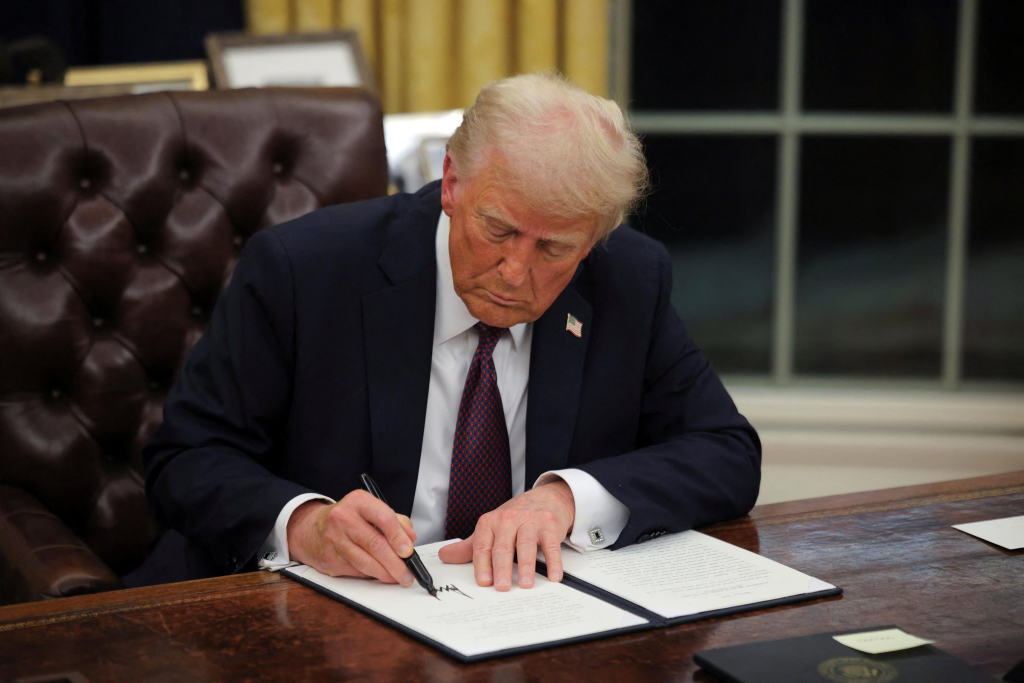
The roots of this moment stretch back to a humid July night in 2019, when Epstein’s arrest at Teterboro Airport sent shockwaves through the salons of Manhattan and Palm Beach, his private island a symbol of unchecked excess that ensnared the powerful in its tide. The financier, whose fortune shrouded a trafficking empire that preyed on the vulnerable, had long danced on the fringes of influence, his Rolodex a who’s-who of presidents, princes, and professors. Partial unseals in 2023 and 2024—court-ordered drips from a federal faucet—had already named names: Clinton’s logged flights, Prince Andrew’s awkward denials, even mentions of figures like Reid Hoffman, the LinkedIn co-founder and Democratic megadonor whose boardroom clout extended to Epstein’s post-conviction philanthropy. But those releases, redacted for privacy and paced by judicial caution, left more questions than answers, fueling conspiracy whispers and survivor anguish. “We deserve the full truth, not footnotes,” one advocate, a woman who escaped Epstein’s orbit as a teen, told CNN in a voice steady with the weight of years, her story a heartbreaking thread in the tapestry of trauma that demanded daylight.
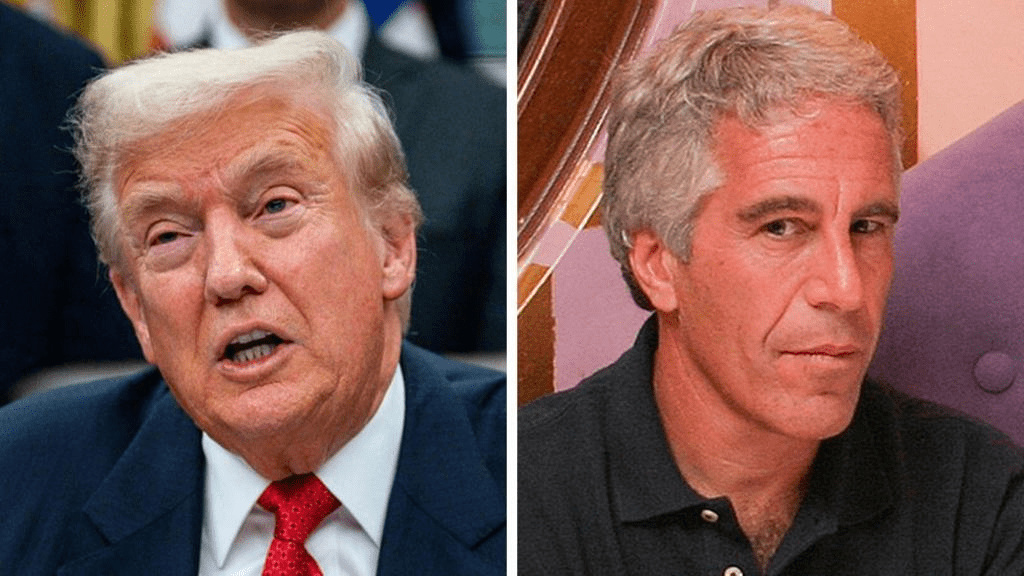
Trump’s signing, a culmination of his 2024 campaign vow to “expose the swamp’s deepest rot,” transforms that demand into deed. The Epstein Files Transparency Act, shepherded through a razor-thin Republican House by Oversight Chair James Comer and a bipartisan Senate trio including Sens. Marsha Blackburn and John Cornyn, compels the DOJ to disgorge the trove without further delay—grand jury testimonies, flight manifests, financial trails—barring only the most sensitive victim details. It’s a legislative sledgehammer, born from Comer’s relentless probes that unearthed over 20,000 pages earlier this year, including emails between Epstein and Harvard’s Larry Summers that surfaced just weeks ago, prompting the economist’s abrupt resignation from the university’s board. “This isn’t about gotcha politics; it’s about accountability for the elite who looked away,” Blackburn said post-signing, her Tennessee twang carrying the earnest fire of a senator who’s chaired hearings where survivors testified in hushed tones, their courage a quiet force propelling the bill forward. The act’s passage, by voice vote in both chambers amid Democratic filibuster threats, underscores a rare unity: even skeptics like Sen. Dick Durbin acknowledged the moral imperative, though whispers of redacted “bipartisan bombshells” hint at the files’ potential to scorch across aisles.
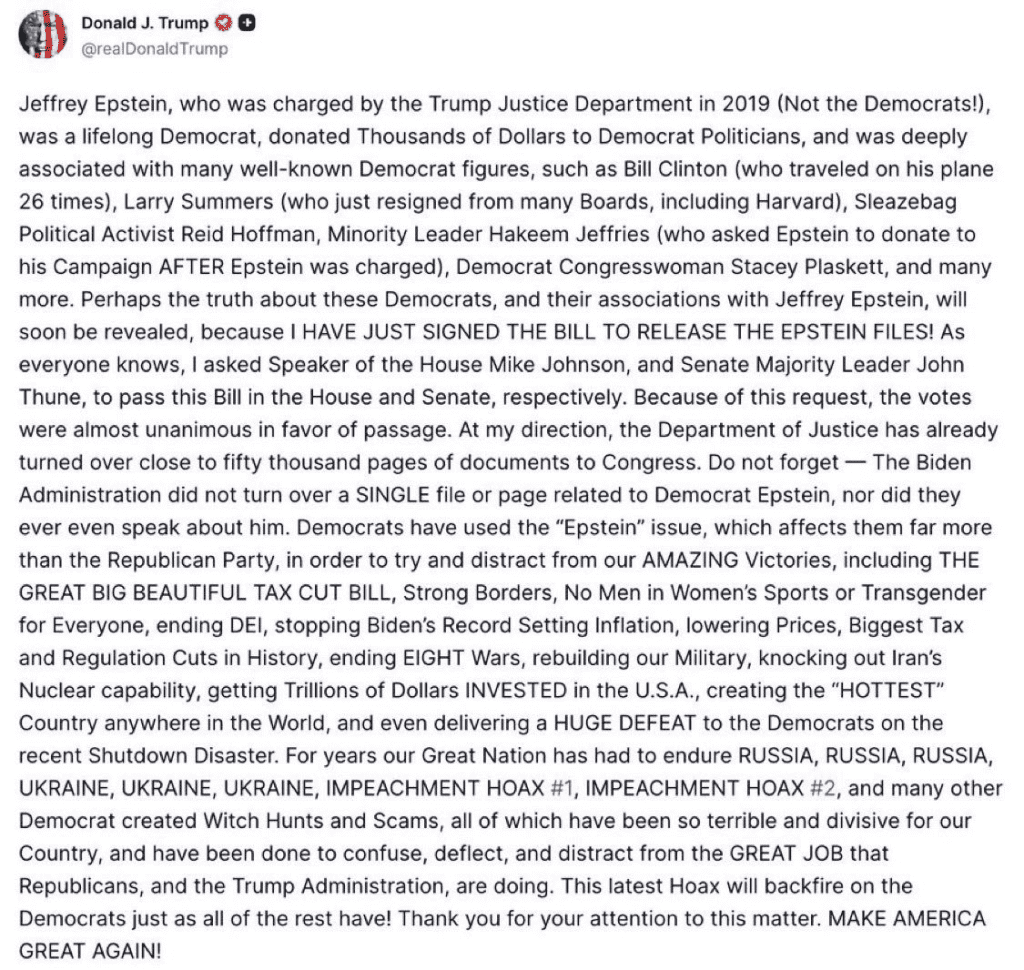
Trump’s Truth Social salvo, posted as the ceremony wrapped, zeroed in on the partisan prism that has colored Epstein’s legacy since his 2008 sweetheart plea—a non-prosecution agreement under then-U.S. Attorney Alex Acosta, Trump’s later Labor Secretary, that shielded co-conspirators and drew bipartisan ire. FEC records, meticulously audited in Comer’s committee, confirm Epstein’s largesse skewed blue: $139,000 funneled to Democrats from 1989 to 2003, including $10,000 to Sen. Harry Reid’s PAC and contributions to the Democratic Senatorial Campaign Committee, dwarfing his scant $2,500 to Republicans. Clinton’s 26 documented Lolita Express jaunts—detailed in flight logs unsealed in 2023—stand as the starkest emblem, a former president untethered from White House duties yet bound to Epstein’s orbit, his denials of wrongdoing a refrain that’s echoed through depositions. Summers’ emails, revealed in Harvard’s recent inquiry, portray a chummy counsel post-conviction, the Nobel laureate seeking advice on personal woes while Epstein dangled donor strings. And then there’s Jeffries, the poised Brooklyn Democrat whose 2019 solicitation of Epstein funds—after the financier’s July arrest—drips with irony: FEC filings show a $2,700 check from Epstein’s foundation to Jeffries’ campaign, a transaction that Comer dubbed “tone-deaf at best, corrupt at worst” in a fiery floor speech.
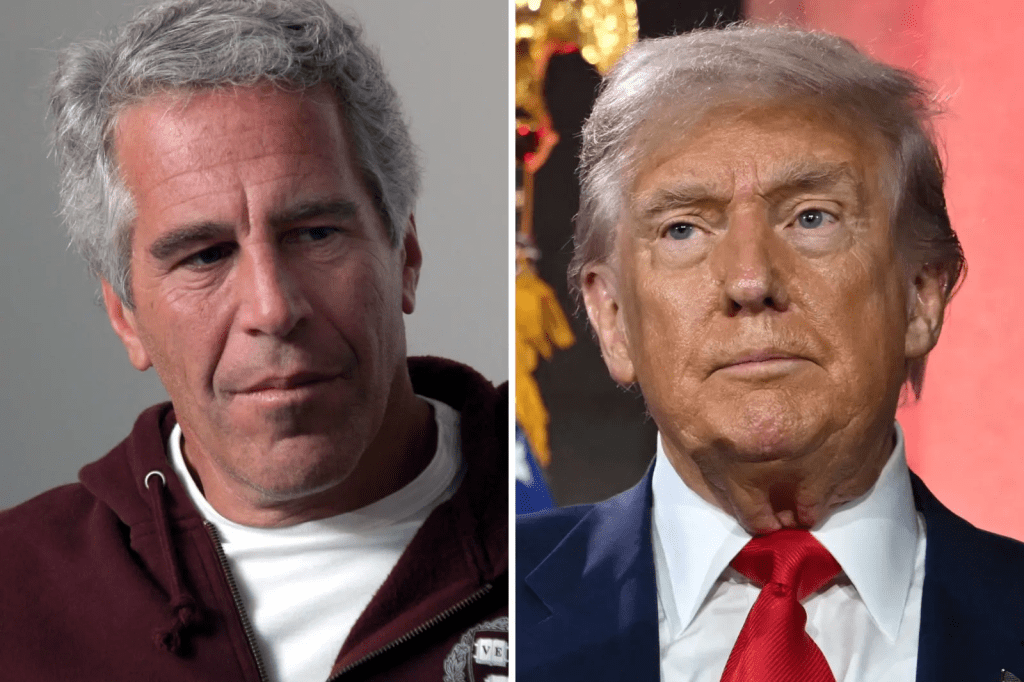
The revelations sting with a personal poignancy, evoking the quiet devastation of betrayal by those entrusted with power. Reid Hoffman, the Silicon Valley sage whose $100 million Democratic donations have shaped midterms, emerges as a poignant figure—his Epstein ties, including board overlaps at MIT Media Lab, now under fresh scrutiny as the files promise unredacted emails. Stacey Plaskett, the Virgin Islands delegate whose oversight role on Epstein’s island probes her own post-charging overtures, faces a mirror held by constituents who once saw her as a fierce advocate. “These weren’t casual acquaintances; they were enablers in a system that let horror fester,” a survivor advocate, speaking under the pseudonym Jane Doe in a Reuters interview, shared, her voice a blend of resolve and raw hurt. The files, per a 2024 DOJ internal review, name over 1,000 individuals—80% non-partisan influencers like academics and philanthropists—suggesting a web that transcends party lines, ensnaring Republicans like former Labor Secretary Acosta and Trump himself in Epstein’s 1990s social swirl, though FEC data shows Trump’s camp rebuffed Epstein donations. This bipartisan shadow adds a layer of tragic complexity, a reminder that predation thrives in privilege’s blind spots, far from the red-blue divide.
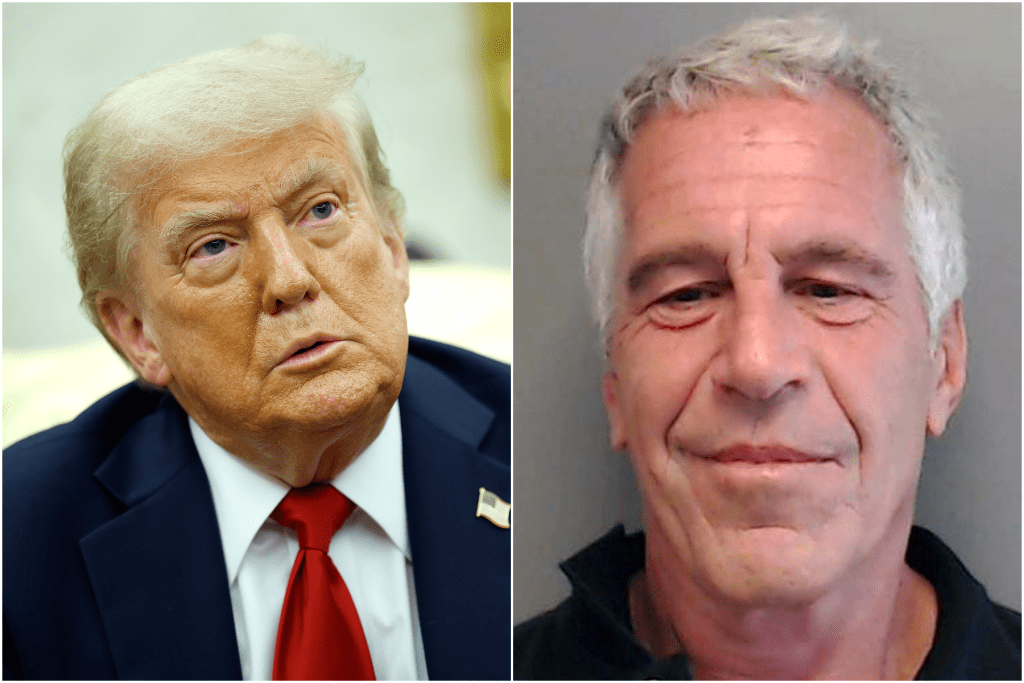
As the 30-day clock ticks toward mid-December, the anticipation builds like a storm over the Potomac, with DOJ lawyers poring over redactions in windowless rooms, balancing transparency’s torch with victims’ shields. Comer, the Kentucky Republican whose probe has ballooned to 15 staffers, vows live streams of the releases, a nod to Trump’s “sunlight as disinfectant” ethos. Critics, from ACLU watchdogs to Democratic strategists, warn of selective leaks fueling midterm mudslinging, but the act’s safeguards—independent review panels, victim veto rights—aim to temper the torrent. For survivors, whose voices propelled the bill through tearful testimonies in Comer’s hearings, it’s catharsis long delayed: the chance to name enablers, to heal wounds reopened by every unsealed snippet. “We’ve waited years for this door to creak open,” Jane Doe reflected, her words a quiet thunder that underscores the human heartbeat beneath the headlines.
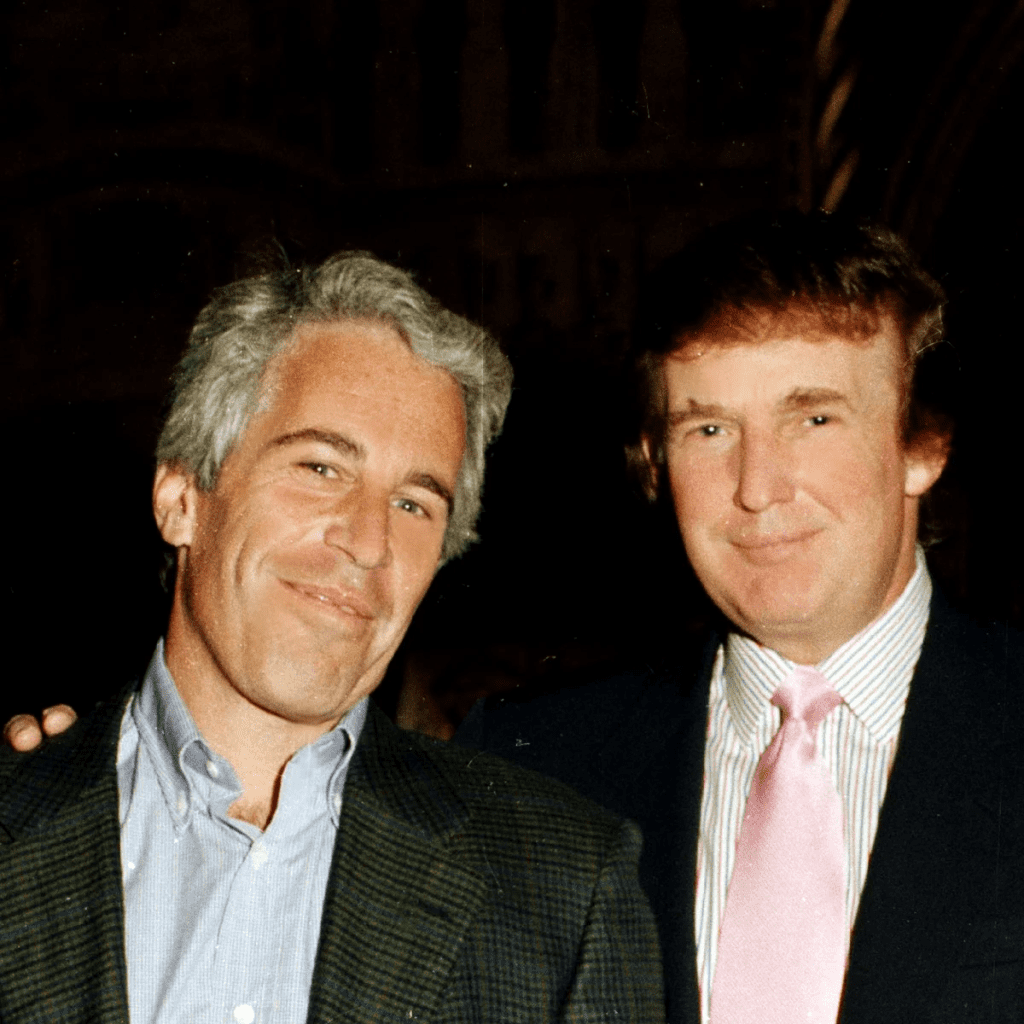
Trump’s framing, with its partisan punch, serves as both catalyst and controversy—a dealmaker’s gambit to underscore his 2019 DOJ’s Epstein takedown, contrasting with what he calls Democratic “distractions” from his agenda’s triumphs: the Great Border Security Act slashing crossings 70%, the Strong Borders, No Men, Women’s Sports or Transgender Act protecting girls’ athletics, the Biggest Tax Cut in History lifting 5 million from poverty. Yet in casting Epstein as a Democratic darling, Trump risks the boomerang: his own 1990s Epstein photos, Acosta’s plea deal echoes. The files, building on 2023’s Giuffre v. Maxwell unseals that logged Clinton’s flights and named Alan Dershowitz, could illuminate those gray areas, per the 2024 review estimating 20% Republican-adjacent figures. It’s a high-stakes unmasking, where truth’s blade cuts both ways, forcing a nation to confront not just names, but the complicity that let darkness linger.
For the American public, tuning in from kitchen tables to cable news, this saga stirs a profound unease—the erosion of faith in leaders who jet to islands while families fracture. Clinton’s flights, once tabloid fodder, now loom as a legacy stain, his post-presidency philanthropy tainted by association. Summers’ Harvard exit, amid emails baring personal vulnerabilities, evokes a fall from grace that’s achingly human. Jeffries’ solicitation, FEC-verified, underscores the temptation’s pull in cash-strapped campaigns. And Plaskett’s ties, woven into Virgin Islands probes, highlight the irony of advocates entangled in the very web they decry. As December nears, with holiday lights twinkling against gathering clouds, the release promises not just documents, but a mirror to our collective soul: the elite’s shadows, the survivors’ light, the unyielding quest for justice in a world too often veiled.
In the Oval’s afterglow, Trump stepped back, the pen set aside like a sword sheathed after battle. His signing wasn’t vengeance; it was vindication, a fulfillment of the transparency pledge that echoed through 2024 rallies, where crowds chanted for “the list” amid chants of “Lock her up” repurposed for Epstein’s ghosts. For victims, it’s validation—a step toward closure in a story of stolen childhoods and silenced voices. For politics, it’s peril, a potential powder keg that could reshape alliances and allegiances. As the DOJ’s gears grind toward disclosure, one truth emerges from the hush: secrets, once guarded by the powerful, belong to the people. And in their unveiling, perhaps healing begins—not with perfection, but with the brave act of seeing clearly at last.
